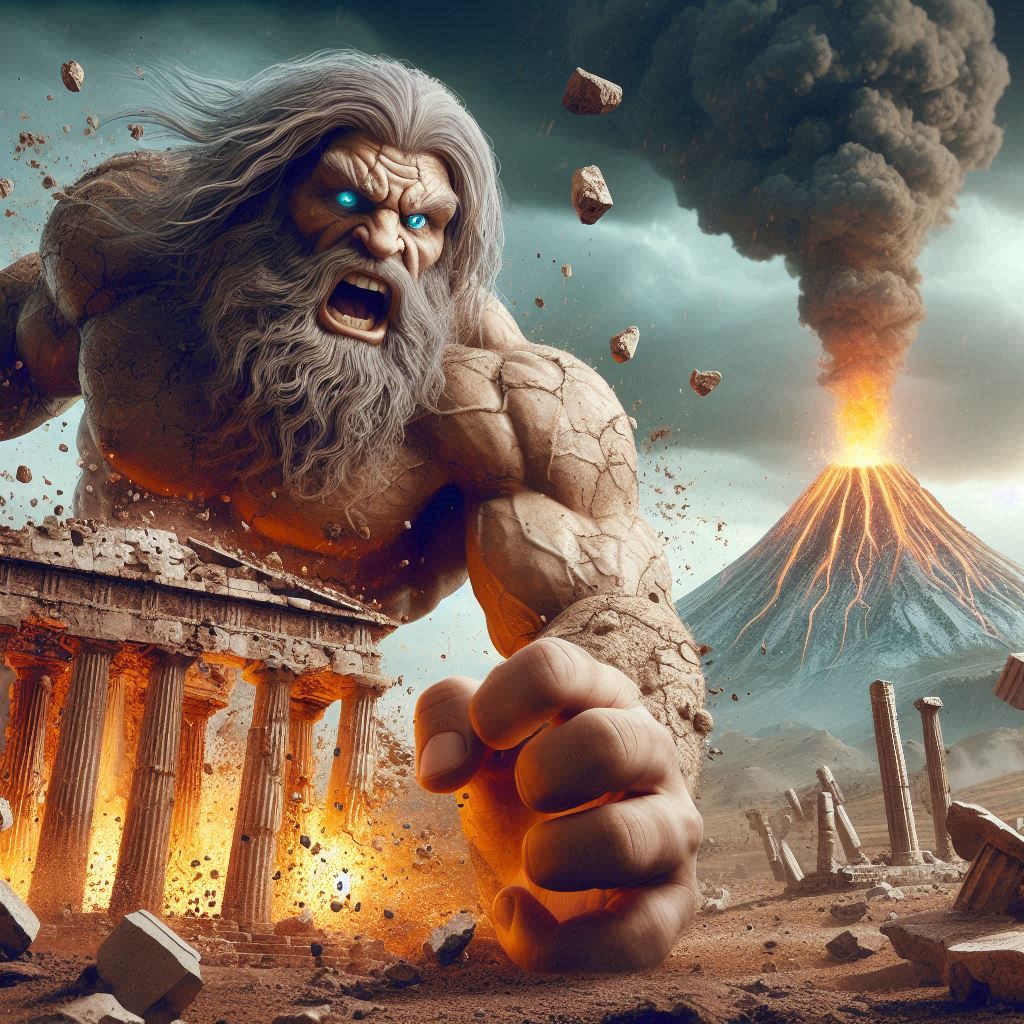Table of Contents
- Origins: Born from the Blood of Uranus
- The Gigantomachy: Enceladus' Moment of Glory
- Powers and Abilities of Enceladus
- Enceladus and Mount Etna: A Legacy of Destruction
- Conclusion
Origins: Born from the Blood of Uranus
Enceladus, like his fellow Giants, has a dramatic origin story rooted in the cosmic violence of early mythology. He was born from the blood of Uranus (the Sky) when he was castrated by his own son, Cronus. This act of rebellion and the subsequent birth of the Giants represented the chaotic and untamed forces of nature. These beings, including Enceladus, were destined to challenge the newly established order of the Olympian gods, setting the stage for one of the most epic conflicts in mythological history.

The Gigantomachy: Enceladus' Moment of Glory
The Gigantomachy, the war between the Olympian gods and the Giants, is where Enceladus emerges as a key player. The Giants, enraged by the Olympians' rise to power, attempted to overthrow them by storming Mount Olympus. According to myth, they piled mountains on top of each other in a desperate bid to reach the heavens.
Enceladus was among the leaders of this rebellion, battling fiercely against the gods. His adversary was none other than Athena, the goddess of wisdom and warfare. The struggle between Enceladus and Athena is one of the most memorable encounters in the Gigantomachy, culminating in a dramatic defeat that would tie Enceladus' fate to the earth itself.
Powers and Abilities of Enceladus
Enceladus was not just any giant; he was endowed with extraordinary powers that made him a formidable adversary in the Gigantomachy. Here are some of his most notable abilities:
Immense Strength
Enceladus, like all Giants, possessed incredible physical strength. His immense power made him a serious threat to the Olympian gods, capable of wielding enormous weapons and causing vast destruction. This strength was central to his role in the Gigantomachy, where raw power was needed to challenge the divine order.
Gigantic Size
Enceladus was of enormous size, towering over mortals and rivaling even the gods. This gigantic stature allowed him to physically challenge the Olympians and participate in their attempt to scale Mount Olympus by piling up mountains. His size was not just a symbol of his power but also a literal manifestation of the chaotic forces he represented.

Earthquake Generation
One of the most fearsome abilities attributed to Enceladus was his capacity to generate earthquakes. This power symbolized his deep connection to the earth and the primal forces within it. The myth that he was buried beneath Mount Etna, causing volcanic eruptions and earthquakes when he struggled, highlights this ability. Enceladus was seen as the embodiment of the earth's violent and unpredictable nature.
Regeneration
Although not explicitly mentioned in all myths, Enceladus likely had some form of regenerative ability, which made him difficult to kill. This trait was common among powerful mythological beings, allowing them to endure and resist attacks that would have vanquished lesser foes.
Connection to Nature
As a child of Gaia, Enceladus had a profound connection to the earth and its natural elements. This connection may have granted him control over aspects of the natural world, such as rocks and mountains, which he and the other Giants used in their battle against the gods.
Conditional Immortality
While not immortal in the same way as the gods, Enceladus had a form of conditional immortality. The Giants were incredibly resilient, and it was said that only a combination of divine and mortal forces could kill them. This is why heroes like Heracles (Hercules) were often involved in the Gigantomachy, delivering the final blow to these seemingly indestructible beings.

Enceladus and Mount Etna: A Legacy of Destruction
After his defeat by Athena, Enceladus was said to have been buried under Mount Etna in Sicily. This myth explains the frequent volcanic activity and earthquakes in the region. According to the myth, when Enceladus struggles to free himself from his mountainous prison, the earth shakes, and Mount Etna erupts in fury. This story not only ties Enceladus to a specific geographical location but also reinforces his role as a symbol of the untamed, destructive forces of nature.
Conclusion
Enceladus, the giant of earthquakes and volcanoes, remains one of the most captivating figures in Greek mythology. His story is a powerful reminder of the ancient Greeks' understanding of nature as a force that was both awe-inspiring and terrifying. Enceladus’ powers—his immense strength, gigantic size, and connection to the earth—made him a formidable adversary, and his defeat by Athena symbolizes the triumph of order over chaos.
Even in defeat, Enceladus’ legacy lives on through the myths that explain the natural phenomena of earthquakes and volcanic eruptions. His eternal struggle beneath Mount Etna serves as a potent metaphor for the earth's restless and unpredictable power, a force that no god, and certainly no human, could ever fully control.
Interested in Greek mythology and history ? Click here

